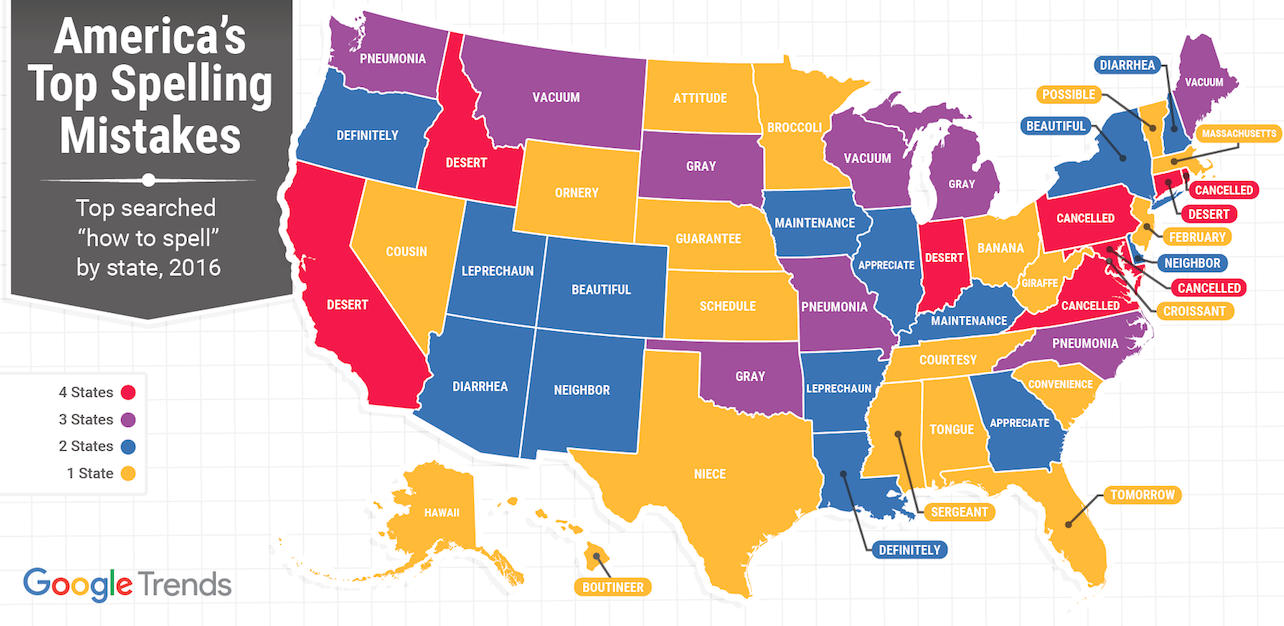Spelling mistakes are easily one of my biggest pet peeves, ever. When people confuse you’re with your, or its with it’s, it drives me completely insane. In my head IT’S common sense – isn’t it?
Okay, I’ll stop with my little rant, and get down to the root of my issues. Woah, okay, not all my issues. The more I think about it, I’m interested as to why spelling mistakes bother me so much. If anything, I’d be more lenient to spelling mistakes because, well, English wasn’t my first language. But I think that’s precisely why it infuriates me as much as it does.
When I came into the US, I literally spoke about three words of the English language: book, bear, and house (you know, the essentials for everyday life, which at age six, was Bear in the Big Blue House). So my poor second grade teacher, pretty much got the worst-case scenario when I was placed into his class. Poor guy couldn’t get three words out (that weren’t book, bear, and house), without seeing my hand being raised at the corner of his eye. As much as I was a definite hassle for my poor teacher, he definitely engrained true Americana English in my head. He constantly corrected my spelling mistakes, in the nicest way possible. And every time I listened to his corrections, I would get a gold star, and sometimes a cookie. With positive reinforcements like that, correct spelling kind of became an obsession for me – but in my mind, I think that’s the case for a lot of students who come from across the pond. We become so adamant about learning our second language to the best possible ability we can, spelling mistakes just simply don’t happen anymore.

(definitely not what my teacher was like – but what a great movie)
I’ve never been in an ESL class, so I can’t pull from those experiences at all. But to my understanding, ESL is even more one on one. The simplest mistakes are made noticeable, not to spite ESL students, but to have them be the best they can.
I have to say though, there are many words in the English language that phonetically make sense, and then as soon as you try to spell them, you’re at a standstill. Let’s look at pneumonia. You don’t hear anyone say, Pneumonia, it’s just pneumonia with a silent p. What in the world is a silent p? Why would it make any sense to include a letter, that isn’t even pronounced? Apparently the residents of Washington, Missouri, and North Carolina, agree with me. It’s the most commonly misspelled word in those three states! I have one word for you guys: autocorrect.
(get on your spelling game America)
Not that I ever need it (haha, lies), but autocorrect is both a blessing and a demon. It makes you look incredibly smart in the texting world, but when it comes to writing a note by hand, you can’t call on siri to fix your “namonia” for pneumonia (I’m okay with that though, because how many times will you actually write down a note by hand with that word?)
My recommendation for you readers that are struggling with your spelling bee skills, and have to constantly google whether you’re spelling something correctly – is to turn off your autocorrect. I’ve done it before, and besides the annoyance of having to go back and correct your texts when you only have one hand to text with him, while you hold a chai latte in the other, it actually taught me a lot. I wasn’t so lazy anymore, and it forced me to keep up with the spelling skills that I gained in second grade. So put that chai latte down (I know, this won’t be easy), turn off your autocorrect, and take a stand against spelling laziness. Who knows? You might become so great you’ll sign up for an adult spelling bee, win, and buy yourself a drink with your earnings. It’s a win-win.

(this could be you)

